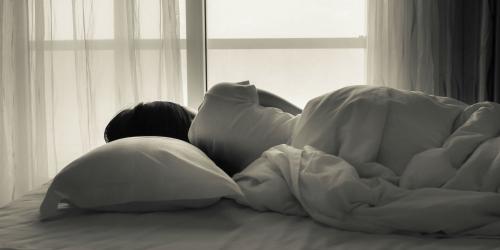If you are afraid of swallowing a spider or a fly while sleeping, rest assured, the chances are incredibly low and it would have, in any case, little impact on your health.
On the other hand, suck dust, mites and pollens, yes.
Sleeping with your mouth open increases the risk of irritation and cavities
Those who sleep with their mouths open wake up with dry mouths. If this behavior is occasional, no problem. But if it reproduces regularly, the throat and bronchi also dry up.
The air inspired by the nose is indeed moistened and filtered by hundreds of hairs located in the nasal cavity. But the one absorbed by the mouth is not, which creates congestion, irritation and increases the risk of allergies .
Breathing at night through the mouth also disturbs the balance of the oral environment. In people who sleep open mouth, oral acidity is much higher than in those who keep the lips closed.
According to New Zealand researchers at the University of Otago *, the pH of the oral mucosa can drop to 3.6 (7.7 mouth closed), an acidity equivalent to that generated by a glass of soda or orange juice .
Result: saliva exercises less are protective film role. Bacteria can chew and damage tooth enamel, increasing the risk of tooth decay.
Good actions to breathe through the nose during the night
To breathe through the nose during the night, it is better to avoid sleeping on your back and favor the ventral position or as a rifle.
And regularly renew the air of the room . A poorly ventilated room is indeed loaded with dust and dust mites, which makes the air less healthy and pushes to breathe more through the mouth.
Men are particularly affected because a third of them sleep spontaneously open mouth, against 5% of women.
* www.otago.ac.nz/news/news/otago527804.html




